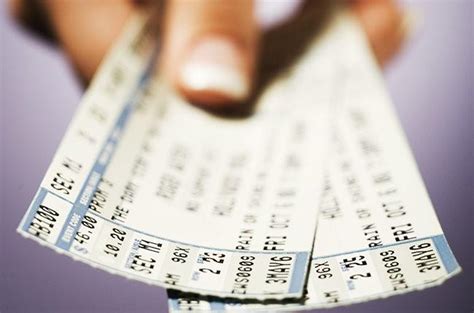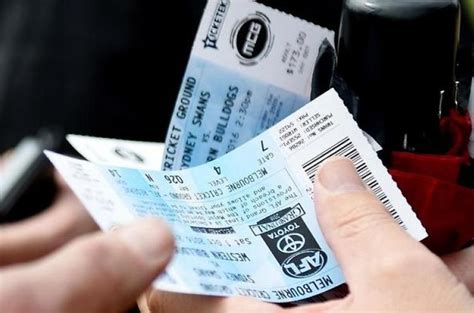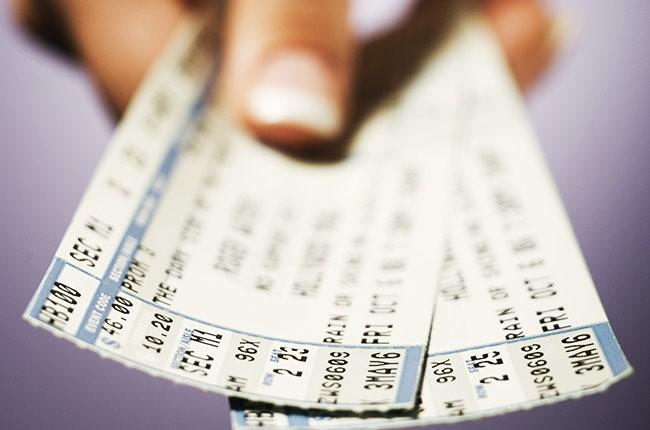Promoting an event effectively can be challenging, especially when trying to reach the right audience and ensure a strong turnout. In today’s digital age, Google Ads has emerged as a powerful tool to help event organizers maximize their event attendance. By leveraging the platform’s advanced targeting capabilities and vast reach, you can place your event directly in front of potential attendees who are actively searching for similar experiences. This article explores how to use Google Ads to boost your event attendance, covering everything from setting up your campaign to targeting the right audience and crafting compelling ad copy. Whether you’re planning a small local event or a large-scale conference, Google Ads can be a game-changer in your marketing strategy.
isorblog.com invites you to explore this topic thoroughly.
1. Introduction
The event planning landscape is highly competitive, with strong attendance being paramount to success. Whether it’s a conference, workshop, concert, or fundraiser, reaching the right audience is crucial. While traditional advertising methods still hold value, they may lack the precision and reach needed to maximize attendance. Digital advertising, particularly Google Ads, emerges as a powerful solution in this context.
Google Ads provides event planners with a powerful tool to promote their events and reach a highly targeted audience. By placing their message in front of individuals actively searching for related events or topics, event planners can tap into a pool of potential attendees who are already interested in their offerings. A well-executed Google Ads strategy can significantly enhance event visibility, drive registrations, and ultimately contribute to a successful event turnout.
This article will guide you through the process of leveraging Google Ads to effectively promote your events. We will cover everything from creating an ad campaign to reaching your ideal audience, crafting compelling ad copy, and monitoring your campaign’s performance. Our aim is to help you maximize your Google Ads investment and ensure your event gets the attention it deserves.

2. Importance of event attendance
A successful event, be it a small community gathering or a large corporate conference, hinges on strong attendance. Not only does high attendance guarantee the event’s success in achieving its objectives, such as spreading awareness, generating revenue, or building networks, it also elevates the overall experience for attendees. A vibrant crowd fuels the event’s energy, fosters engagement, and encourages interaction, leading to valuable connections and opportunities.
For businesses and organizations, strong attendance is a key indicator of a successful event and a positive return on investment (ROI). Whether the goal is building brand awareness, generating leads, or nurturing stakeholder relationships, a large and engaged audience maximizes the event’s impact. Conversely, low attendance can be financially draining and detrimental to an organization’s reputation. It devalues the event and potentially hinders future endeavors.
To ensure successful event attendance, effective promotion is crucial. Google Ads provides a highly targeted and cost-effective solution for reaching your desired audience. By placing your event in front of individuals most likely to be interested, Google Ads increases the likelihood of strong participation, ultimately helping your event achieve its objectives.

3. Overview of Google Ads
Google Ads stands out as a powerful online advertising platform, enabling businesses and event organizers to connect with a wide yet specific audience. The platform functions on a pay-per-click (PPC) basis, meaning you only incur costs when someone interacts with your advertisement by clicking on it. This makes Google Ads an efficient solution for event promotion, as you have the flexibility to adjust your budget based on your requirements and only pay for genuine engagement.
The platform provides a diverse array of advertising options, encompassing search ads, display ads, video ads, and beyond. For event promotion, search ads stand out as a particularly effective strategy, as they connect with users actively seeking information pertaining to your event. Through Google Ads, you can strategically bid on specific keywords directly related to your event, guaranteeing your ad’s prominent placement atop search results when potential attendees are researching similar events or interests.
Google Ads offers powerful targeting options, letting you pinpoint your ideal audience. By refining your reach based on factors like location, age, interests, and even past searches, you can direct your marketing efforts to those most likely to attend. This precise targeting maximizes campaign efficiency and ultimately drives higher event attendance.

4. Setting up Google Ads for event promotion
Promoting your event with Google Ads is a simple yet strategic process. Start by creating a Google Ads account if you don’t have one already. Once logged in, begin by setting up a new campaign. Select a campaign goal that best reflects your event objectives. For instance, if you’re aiming to boost registrations, choose “Leads,” or if you want to drive traffic to your event page, select “Website Traffic.”
Next, choose the campaign type. For event promotion, “Search” or “Display” campaigns are ideal. Search campaigns target users actively seeking events like yours, while display ads increase visibility by appearing on websites and apps. Finally, define your audience by specifying location, demographics, and interests, ensuring you reach potential attendees.
Once you’ve established your budget and bidding strategy, it’s time to craft your advertisement. Use compelling headlines, brief descriptions, and a clear call to action (such as “Register Now”) to encourage clicks. Make sure your landing page is optimized for a smooth user experience, seamlessly directing them to event details and registration. Finally, review and launch your campaign, allowing Google Ads to showcase your ads to your desired audience.
5. Targeting the right audience
To ensure your Google Ads campaign for event promotion is successful, targeting the right audience is crucial. Google Ads offers sophisticated targeting tools to connect with those most likely to be interested in your event. One powerful method is location targeting, allowing you to refine your audience based on specific geographic areas. This ensures your ads reach people in close proximity to your event or in regions where your target audience is concentrated.
By employing demographic targeting, you can pinpoint your ideal audience by setting specific criteria like age, gender, income, and other relevant factors. This strategy allows you to tailor your message to those who are most likely to be interested in attending your event. Interest-based targeting takes this a step further, focusing on users who have previously shown an interest in topics related to your event, such as through online searches or engagement with relevant content.
Furthermore, remarketing is a potent tool that can effectively display ads to individuals who have already interacted with your event page or content. This approach helps maintain your event’s visibility and motivates prospective attendees to finalize their registration. By strategically targeting your ads, you can enhance attendance rates and minimize wasted advertising expenditure.
6. Creating compelling ad copy
Creating compelling ad copy is essential for driving clicks and conversions for your event promotion through Google Ads. Your ad copy must grab attention quickly and convey the value of attending your event in just a few words. Begin with a clear, attention-grabbing headline that directly highlights the event’s main appeal, such as the unique experience or key benefits attendees can expect. For example, headlines like “Join Our Exclusive Business Networking Event” or “Learn from Industry Experts at XYZ Conference” effectively draw interest.
To make your event description truly compelling, emphasize the key aspects that set it apart. Showcase highlights such as renowned keynote speakers, exclusive workshops, or limited-time deals. Employ active language, like “Register Now,” “Reserve Your Spot,” or “Grab Early Bird Tickets,” to motivate users to take immediate action.
Include a clear call to action (CTA) that directs users to your event registration page. Your ad copy should be concise, relevant, and tailored to the expectations of your target audience. Well-crafted ad copy will not only drive clicks but also improve overall conversion rates for your event.
7. Monitoring and optimizing ad performance
To ensure your Google Ads campaign successfully promotes your event, it’s essential to monitor and optimize its performance. After launching your campaign, regularly review key performance indicators (KPIs) like click-through rates (CTR), conversion rates, and cost per conversion. These metrics offer valuable insights into how effectively your ads are reaching and engaging your target audience.
Leverage Google Ads’ integrated reporting tools to assess the performance of your ads and keywords. Identify underperforming ads and implement adjustments to your ad copy, targeting parameters, or bidding strategy. Conduct A/B testing on headlines, descriptions, and visuals to determine which elements resonate most effectively with your target audience.
Furthermore, monitoring search terms that activate your ads can unveil new keyword opportunities or irrelevant terms needing exclusion. Regularly adjusting your audience targeting based on performance data will also maximize your advertising budget. Consistent monitoring and optimization of your campaign will enhance its efficacy, leading to increased event attendance.
8. Case studies and success stories
Google Ads has proven its effectiveness in driving event attendance, as showcased by numerous case studies and success stories. For instance, a tech conference leveraged Google Ads to achieve a remarkable 50% increase in registrations. By employing targeted search ads that included keywords like “tech conferences 2024” and “innovative tech events,” they successfully captured the attention of individuals actively searching for such experiences. The conference’s persuasive ad copy, highlighting keynote speakers and exclusive networking opportunities, resulted in a substantial increase in click-through rates and conversions.
A local charity fundraising event achieved remarkable success by leveraging Google Display Ads. Targeting users in the surrounding community with a history of interest in charitable causes, the organizers crafted compelling ads featuring impactful visuals and an emotional appeal. This strategic approach yielded impressive results, leading to a 40% surge in ticket sales compared to previous years.
These examples illustrate the remarkable impact of combining Google Ads with effective targeting and engaging ad content on event attendance. By studying such case studies, event planners can refine their promotional strategies, implement best practices, and achieve similar levels of success.
9. Conclusion and final tips
To summarize, Google Ads can be a powerful tool for boosting event attendance and engagement. Its sophisticated targeting capabilities and array of ad formats enable you to connect with your target audience precisely, maximizing the effectiveness of your promotional campaigns.
To maximize your campaign’s success, keep these key tips in mind:
* Set Clear Objectives: Begin by defining specific goals for your campaign, such as targeted registrations or desired levels of audience engagement. This clarity will provide a framework for your strategies and guide your measurement of success.
* Continuously Monitor and Adapt: Regularly track the performance of your campaign and be prepared to adjust your tactics based on the insights you gain from real-time data. Employing A/B testing with different ad copy and formats will help you identify what resonates most effectively with your target audience.
Third, focus on developing high-quality landing pages that are consistent with your ad copy. A smooth and intuitive user experience can dramatically influence conversion rates. Finally, explore remarketing strategies to re-engage users who have expressed interest but haven’t yet registered.
By adhering to these guidelines and effectively leveraging Google Ads, you can significantly boost your event promotion strategy, attract larger audiences, and ensure a successful event. With the right approach, Google Ads can become an invaluable asset in your event planning arsenal.
isorblog.com


